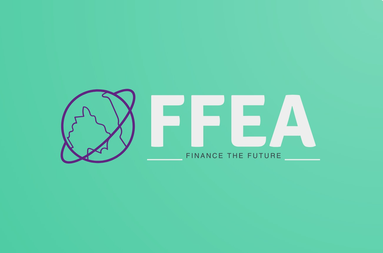

Keynote Speaker : Professor Renee Adams, Oxford University
Professor Adams work focuses on information flows on boards, bank governance, group decision-making, the governance of central banks and gender diversity on and off boards. After receiving an MS in Mathematics from Stanford University and a Ph.D. in Economics from the University of Chicago, she held positions at the Federal Reserve Bank of New York, the Stockholm School of Economics, the University of Queensland and the University of New South Wales and visiting positions in Germany, Italy, Japan, Norway, Sweden and the US. She is a Fellow of the European Corporate Governance Institute and a Senior Fellow of the Asian Bureau of Finance and Economic Research.
Her global experience is reflected in the interdisciplinary nature of my research, which has been published in top accounting, economics, finance and management journals.
In 2019 she was awarded the Female Career Award from HEC Lausanne. This award honors an outstanding female academic career outside HEC twice a year and she received the 1st edition in 2019.
Her work on gender diversity, in particular, has received global media coverage and it has has been featured in news outlets such as the Financial Times, the Economist, the Daily Telegraph, Boston Globe, Australian Associated Press, The Australian, Irish Herald, Scotland on Sunday, Board IQ, Press Trust of India, The New Zealand Herald, Berlingske Nyhedsmagasin, NK (Norway), Politiken (Denmark), DN (Norway) among others.

ICMA Centre, Henley Business School, Reading, UK June 9-11 2024
3nd Conference on INternational Finance; Sustainable and Climate Finance and Growth
Future Finance and Economics Association and ICMA Centre
3nd Conference on International Finance; Sustainable and Climate Finance and Growth
FFEA and ICMA Centre invite you to submit papers for the third CINSC. This follows the very enjoyable and successful first, in Napoli in June 2022, and the excellent conference in Ljubljana in June 2023
Theme
We welcome all papers and workshops in the broad fields of International, Climate and Green finance, welcoming in particular their interactions with each other and how they can aid the sustainable growth of economies, corporations and organizations. Papers that examine these issues on their own are welcomed, but papers which examine the overlaps, interstices, conflicts and concordances are highly welcome!
Timeline
Papers and extended abstracts, as well as proposals for workshops and panel discussions, should be submitted by 10 March 2024. Submissions are now open at https://coms.app/ffea-Reading-2024/welcome.html
About the Conference
Conference Logistics
- Conference sessions will take place at the ICMA Centre, Henley Business School, Reading, UK.
- The conference will be in person only.
- Sessions typically last for 90m, and contain one workshop/roundtable or three papers with discussants.
- Authors of accepted papers will be required to also act as discussants.
- We do not issue visa letters or letters of support.
- Conference fees are all inclusive of meals and supporting documentation
Indicative Schedule.
Sunday June 9: 1730h Early Registration and Networking Event
Monday June 10: 0830-1730 Conference, Keynote speaker, workshops
Monday June 10: 1900 Social Event
Tuesday June 11: 0830-1730 Conference, Meet the editors, workshops
Tuesday June 11 : 1900 Gala Dinner, Trunkwell House Hotel, prize giving.
Conference attendance fee is likely to be in the region of €400-500.
Inquiries
Special Issues/Sections of Journals
For more details see the section below . Papers must in the first instance have been presented at the conference to take place at the ICMA Centre at the University of Reading. The indicative timeline is as follows: August 1st submissions open and October 15th submissions close, with the expected date of publication in quarter one of 2025
- International Review of Financial Analysis - Guest Editors Miriam Marra and Andrew Urquhart, ICMA Center - Beyond Gender - Diversity in International Finance in the 21st Century
- International Review of Economics and Finance - Guest Editor Yizhi Wang, Cardiff - International financial implications of net zero
- Finance Research Letters - Guest Editors Simone Varotto and Lisa Schopohl, ICMA Center - Beyond ESG
- International Journal of Finance and Economics - Guest Editors Tony Klein TU Chemnitz and Lisa Sheenan QUB - Challenges of Generative AI in International Climate and Sustainable Finance
- Journal of International Money and Finance - Guest Editors Samuel Vigne LUISS Business School and Brian Lucey TBS- Climate Change, Climate Risk and the international corporate debt market.




